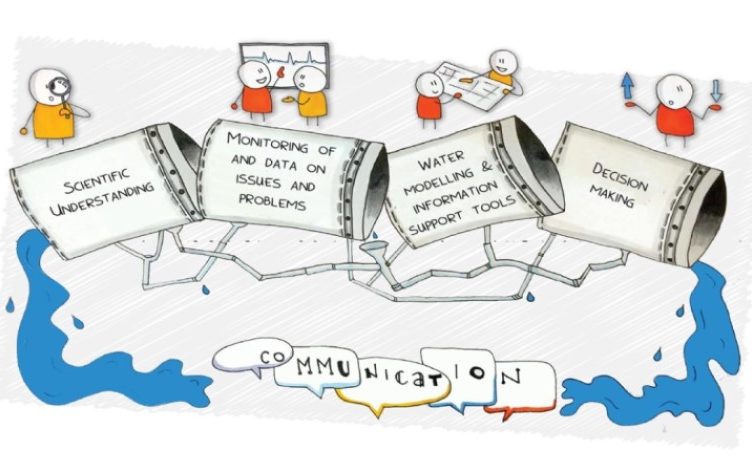
05/12/2024
Event Summary: Overview of water quality modelling projects from the Queensland Water Modelling Network with Callym Dunleavy
Read more
On Tuesday 8 February 2022, Emma O’Neill joined QWMN for a casual interview and discussion along with twenty other, eager Navigating the Currents participants, to discuss the core issues for the water sector, through a climate change and sustainability lens.

This was a very engaging discussion. If you want to have a listen, please visit this link:
Please use passcode: 8eKij%XT
Emma O’Neill is Manager of Environment and Planning at Aurecon, a freelance Communications and Sustainability Strategist, and subcontracts on international projects as an advisor in the environmental, social and governance (ESG) space. Emma comes with a wealth of experience and wears a range of hats spanning the sector. Her expertise provides her a broad perspective when it comes to observing trends in wide-ranging issues, such as climate change and sustainability.
To open the conversation, Emma described the status of Queensland’s water sector fluently, painting a picture of the various issues lining up for us all, in climate change and sustainability, in 2022. From her observations, most water utilities and organisations are now approaching program planning through the lens of long-term risk. This appears to be driven from the bottom up, following a massive step change post-COP26, as customers and the community at large are now insisting upon improved practices.
With this movement, it is becoming more and more obvious that issues affecting one part of the sector, overlap with other parts of the sector. Emma sees, for example, issues for water cycle/urban water cycle planning being affected by:
All these issues have components of modelling underpinning them, so what, are the different puzzle pieces? How do they link together and how do they affect outcomes?

“When it comes to communicating uncertainty, we have a responsibility to present it in a way that observes what is most important to clients and the community”, Dylan Cain.
Most answers are being discovered through iterative and collaborative change. “Community messaging is something we really need to work hard on to drive policy change and to get people to change”, Emma O’Neill. Deliberate, multidisciplinary collaboration and community engagement has been taking place a lot more across the sector with councils and water organisations engaging with professional and community stakeholders, improving the dialogue and slowly improving trust.
Emma suggests Rebecca Huntley’s book, “How to talk about climate change in a way that makes a difference”, for anyone interested in diving into this discussion.
There are a number of tools and documents now available for professional and public use like the Qld Future Dashboard which is the recommended tool for use by all professionals considering climate issues in Queensland.

Use this link to access the Queensland Government’s, Queensland Future Climate Dashboard. It is a comprehensive set of high resolution climate change projections for Queensland and underpin the Queensland Climate Adaptation Strategy. It is publicly available for use now.
The Engineers Australia’s Queensland Water Policy Statement provides a point of view to guide water governance and build a resilient future.
In addition the discussion touched on water and hydrogen futures, the following documents help build an understanding (not just from electrolysis):
https://www.ghd.com/en/perspectives/water-for-hydrogen.aspx
Please use the passcode: 8eKij%XT